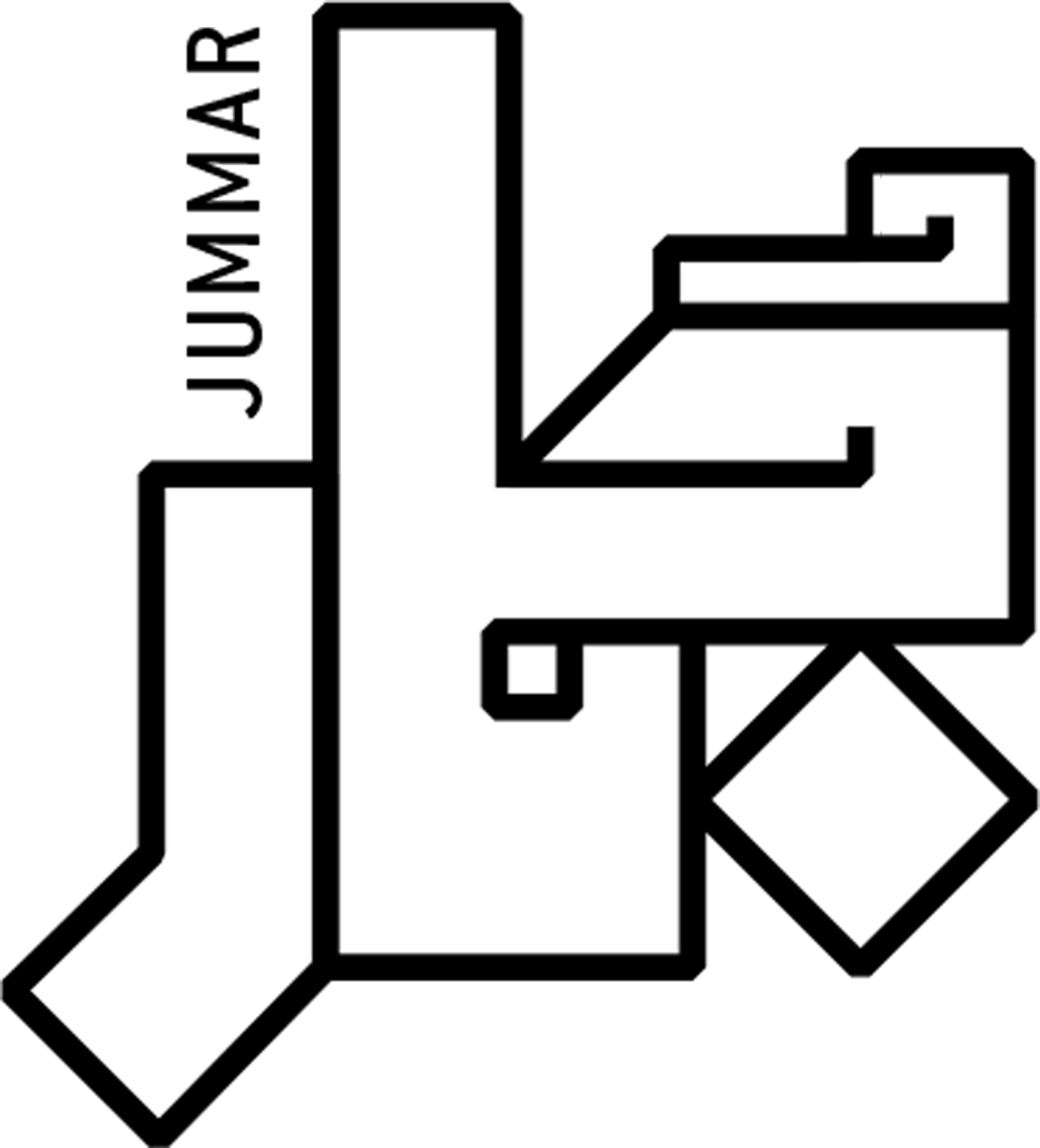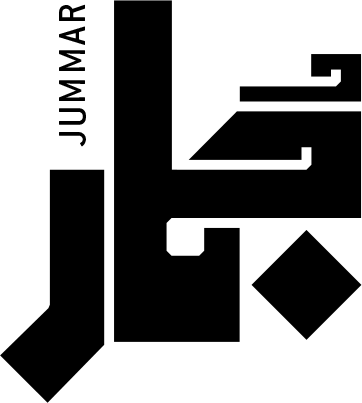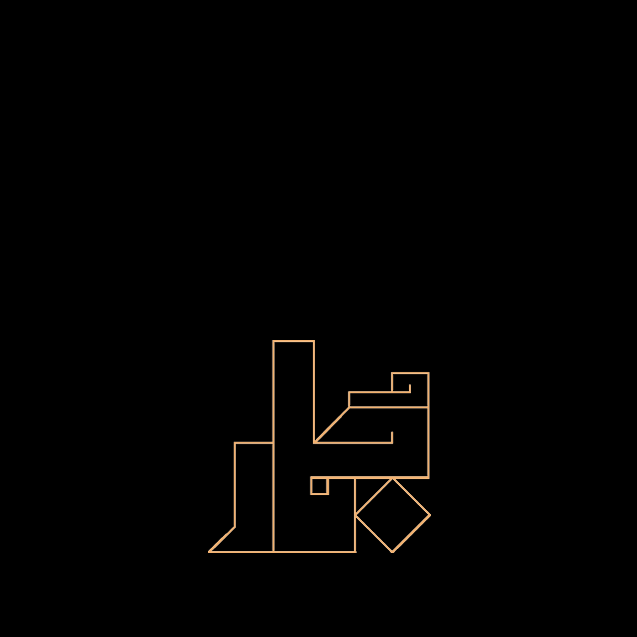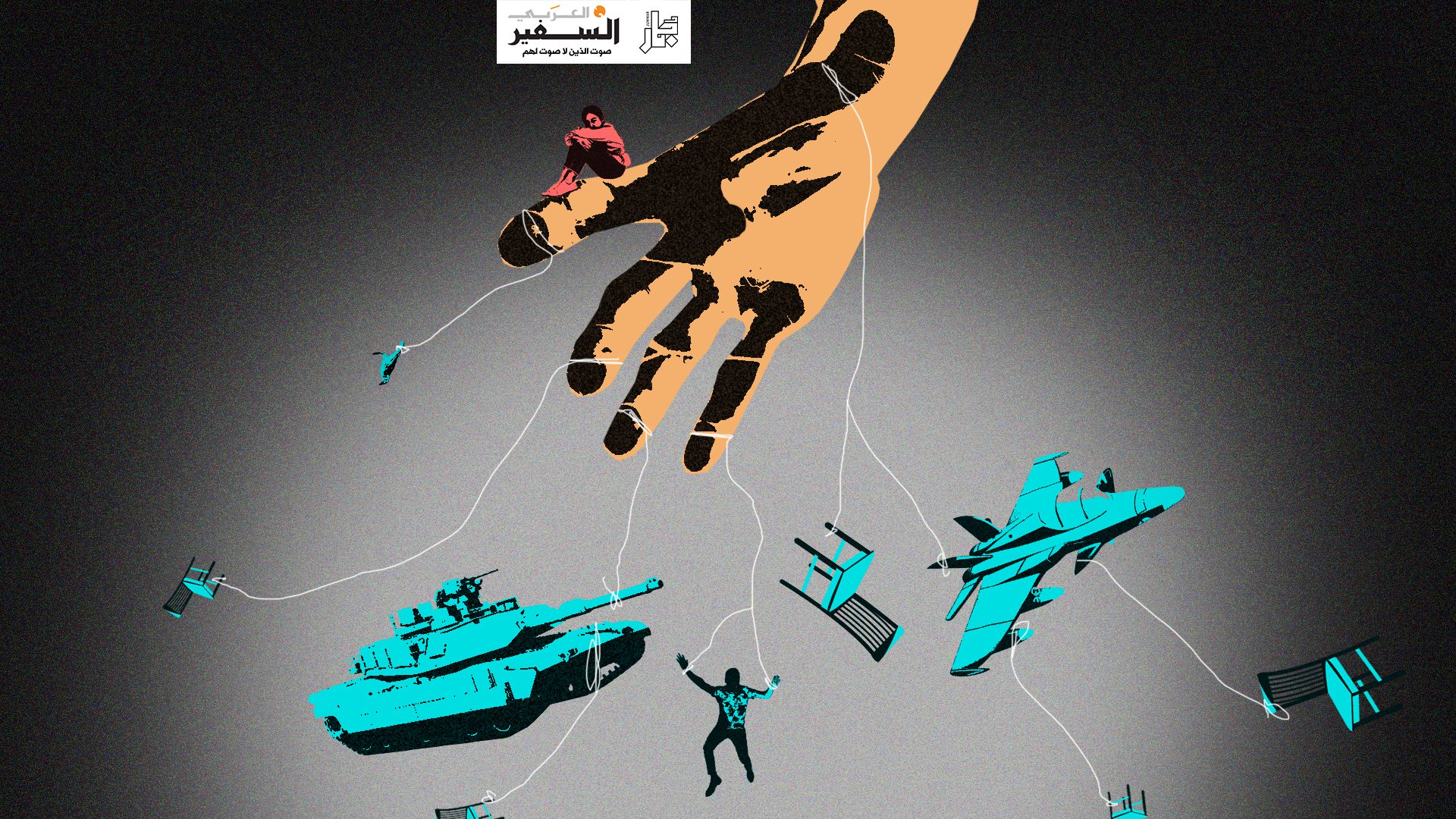Ommetaphobia: The Gouged Eyed of Childhood
08 Nov 2023
It was the first year of the occupation. In that atmosphere filled with the smoke of bombings and the fumes of fires, even the healthiest of eyes suffered. What, then, could be expected of eyes as delicate and susceptible as mine? Everything around me seemed to pave the way toward my impending blindness: the doctor's awkward questions and his clinic’s painful lighting, pollen dust mixed with toxic gases, the sharp blades of knives pointing at me at garage stalls and shops, the harsh sun and its searing rays piercing through layers of my eyes’ aching membranes, the suffocating military color palette wherever I turned... And, finally, there was the school fence, strangled by barbed wire much like our own lives were.
Text and collages by Mobeen Al-Khashani
Spring, the crowned king of all seasons, a much celebrated time of the year, earnestly awaited by the yards and gardens everywhere, was the absolute bane of the existence of a child suffering from a severe kind of pollen allergy. That child was me.
The type of allergy I suffered from caused uncontrollable itching in the eye balls and annoying watery eyes that never cease to overflow with tears. Minute, white granules sat in the insides of my eyelids, turning the fresh spring breeze into a thousand sharp blades cutting through my eyes. To me, the colorful flowers of spring were thorny, spark-spewing ejectors to be avoided at all costs.
Pollen dust has always deprived me of the simple joy of playing outside in the spring, or even enjoying watching its delightful colors, while every kid I knew was playing popular games in the outdoors, next to some palm trees or wild plants. I remember the game of “Hah and Yeddah ” (1), a spin-off on baseball that older kids from our street used to play near the “Gasbah” (2), the pit where sewage water accumulated, and where unwanted natural plants grew, with their reeds sticking out like rusty spears.
This was my struggle… A suffering that went beyond the maddening itching caused by allergies and the involuntary over-blinking that made me vulnerable to bullying in the streets and later at school. The condition triggered in me an abhorrent phobia that poisoned my childhood with a deep apprehension of sharp-edged or pointy objects and shapes. The mere mention of these things or seeing them conjures up vivid images of their pointy ends gouging out my eyes. The unpleasant impacts of this phobia remain with me to this day.
Any pointed, blade-like or sharp-edged object, from sewing needles and knives to prickly plants, and even the sharp edges of otherwise harmless pieces of furniture like tables, had turned the gift of sight into a curse and the light of my eyes into my personal torment.
The condition is known as Ommetaphobia, a rare kind of phobia from which no one I have ever met appears to suffer. In fact, I myself had been entirely unfamiliar with this particular phobia until recently, when I researched the symptoms that had plagued my childhood. It was only then that I realized they precisely matched the characteristics of this uncommon phobia.
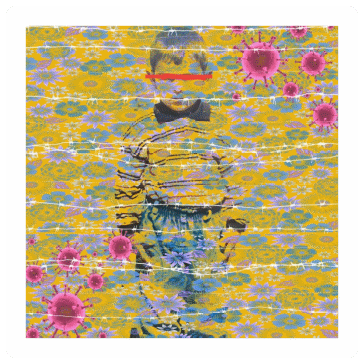
This was my private hell. I struggled as a child to articulate what I was experiencing to my own mother. That’s why even my doctor couldn’t understand my repeated descriptions of the daunting fantasies that would haunt me whenever I encountered pointy shapes or objects. He asked my mother if I were perhaps experiencing jealousy of a younger sibling, to which she answered that I was the youngest and therefore the center of attention in the family. The doctor, perplexed, fell silent for a moment, glanced at me, then sufficed to advise me to resist the temptation of over-blinking my eyes and to practice self-restraint to the best of my abilities.
I cannot deny the doctor’s kind attempt to help, despite the harshly painful lighting in his clinic. However, he was simply unable to pinpoint the reason behind this condition that left me sleepless every night with an itch that was too uncontrollably aggressive to resist. I realized that he just couldn’t comprehend the gravity of my condition, and that the problem was more complicated than a regular pollen allergy. After that visit, I stopped trying to explain.
With time, I came to terms with the itchiness and the allergy meds that my mother religiously reminded me to take every night before bed. Later on, I managed to come up with defense mechanisms to avoid the horror of sensing the eye-gouging effect that closed in on me as a result of seeing the US occupation army vehicles and weapons of everywhere.
The defense mechanisms I created were also illusory. I fought illusion with illusion. Whenever I felt a strong panic attack approaching, I imagined a cold stream of water running through my eyes, cleansing them as water might clean a glass surface from any impurities. This was the only way I could fall asleep at night, only to find my pillow soaked in my own tears the next morning.
I was five years old, and it was time for me to enroll in school in the city of Al-Najaf in Wasit Governorate. After a long journey that included a medical examination and buying registration forms from the street of bookstores, I had to endure a difficult walk through the city streets with my mother, wearing huge sunglasses that covered most of my face. Every now and then, I raised my fingers to adjust my glasses, but they kept sliding down my face. Most of the streets were blocked and filled with convoys of occupation forces, making the journey longer and more challenging than usual.
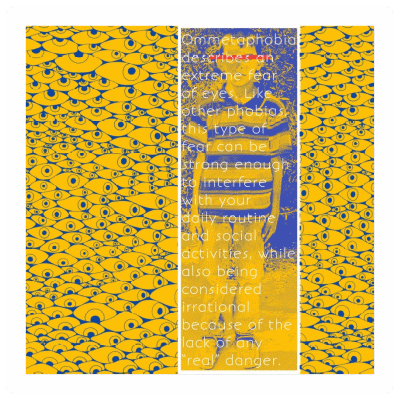


After I took my exam, I was required to present an official personal photograph for my school document. And so my family quickly mobilized their efforts to instruct me on the matter. My siblings gave me lessons on how not to blink my eyes while taking the picture, cautioning me to keep my eyes open when the camera flashed its light.
They were making sincere efforts to help me, and I responded with my best behavior to their attempts to teach me. I even practiced with my sister to keep my eyes open for as long as possible. They encouraged me, saying I would make an excellent student, and they asked me to count from one to a hundred. When I reached twenty, they stopped me, offered a reassuring pat on the shoulder, and then returned to emphasizing the importance of keeping my eyes open in front of the photographer’s lens.
Their relentless warnings burdened me with a heavy sense of responsibility. Anxiety began to creep in, making me restless. My mother accompanied me to the photographer’s studio, and as I tightly clutched her hand, she could feel the unusual warmth of my own hand. She asked me if I was feeling sick, but I told her I was just fine.
Due to the presence of occupation vehicles and military checkpoints that sealed most of the city’s streets, we were forced to take the lengthy school street to reach the photographer’s studio. This street stretched endlessly and at its end was a school that the occupation had turned into an army base. Military vehicles and armored Humvees were scattered alongside the road, and helicopter blades were visible beyond the school’s low fence.
The school fence was lined with barbed wire. Every few meters, there were more piles of sharp, piercing wires. The occupation soldiers used these wires to mark the allowed walking path and prohibit vehicular movement. Soldiers were scattered in the area, with knives attached to their military uniforms and their weapons aimed at passersby.
At the street’s entrance, my mother removed my sunglasses to avoid arousing any suspicion among the soldiers. I firmly shut my eyes and tightened my grip on my mother’s hand. We started walking, and I began counting silently from one to one hundred. However, midway through, I stumbled and hit the ground in pain. My mouth filled with dirt, and I scraped a small piece of skin under one of my eyes, resulting in a minor bleeding. I managed to hold back my tears, but I was in real pain. My mother wiped away the dirt and cleaned me up, then we continued walking along a path that my eyes vehemently despised.
It was the first year of the occupation. In that atmosphere filled with the smoke of bombings and the fumes of fires, even the healthiest of eyes suffered. What, then, could be expected of eyes as delicate and susceptible as mine? Everything around me seemed to pave the way toward my impending blindness: the doctor’s awkward questions and his clinic’s painful lighting, pollen dust mixed with toxic gases, the sharp blades of knives pointing at me at garage stalls and shops, the harsh sun and its searing rays piercing through layers of my eyes’ aching membranes, the suffocating military color palette wherever I turned… And, finally, there was the school fence, strangled by barbed wire much like our own lives were.
Despite all that, I had to cross that lengthy street, holding my mother’s hand, all the way to the photographer’s studio. And after that arduous experience, I was still expected to open my eyes wide for a picture that would identify me for the rest of my life.
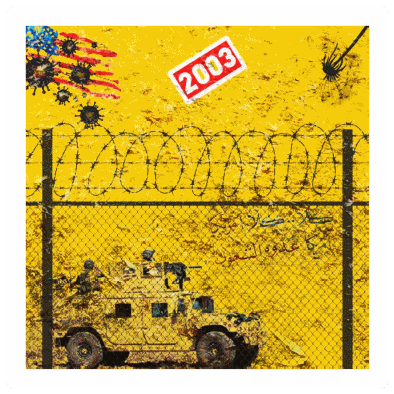


In the photographer’s chair, at last, I found myself facing a storm of cold air conditioner wind-blades blowing at me. The photographer, his cigarette dangling from his lips even as he spoke, asked me to hold my chin up and stare at the camera. I straightened my back and opened my eyes wide, but at that moment, I was without my sight. Darkness engulfed me, sharp blades cut through my retina and caused a terribly intense itch. It was as if my eyes were being punished. I held my breath through the torment until I finally heard the sound of the camera click. The photographer chuckled and told me that the flash light wouldn’t hurt me: “It’s just a picture, not a needle.” Little did he know that everything around me had the effect of eye-pricking needles.
My photograph was finally developed. It showed a child with a small scar, his eyes bulging in a manner that would make any onlookers laugh. However, the laughter couldn’t alter the reality that it was a picture of a miserable child of war, his gaze seemingly mummified, his vision impaired. To this day, sharp objects continue to scar my vision, and every camera click carries with it a stern warning: “Open your eyes as wide as you can.”
This article is part of “Twenty Years since the War on Iraq”, a joint production between Jummar and Assafir Al-Arabi, with the support of the Rosa Luxemburg Foundation.
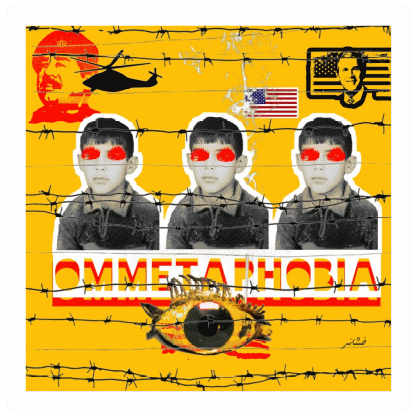


Read More
Text and collages by Mobeen Al-Khashani
Spring, the crowned king of all seasons, a much celebrated time of the year, earnestly awaited by the yards and gardens everywhere, was the absolute bane of the existence of a child suffering from a severe kind of pollen allergy. That child was me.
The type of allergy I suffered from caused uncontrollable itching in the eye balls and annoying watery eyes that never cease to overflow with tears. Minute, white granules sat in the insides of my eyelids, turning the fresh spring breeze into a thousand sharp blades cutting through my eyes. To me, the colorful flowers of spring were thorny, spark-spewing ejectors to be avoided at all costs.
Pollen dust has always deprived me of the simple joy of playing outside in the spring, or even enjoying watching its delightful colors, while every kid I knew was playing popular games in the outdoors, next to some palm trees or wild plants. I remember the game of “Hah and Yeddah ” (1), a spin-off on baseball that older kids from our street used to play near the “Gasbah” (2), the pit where sewage water accumulated, and where unwanted natural plants grew, with their reeds sticking out like rusty spears.
This was my struggle… A suffering that went beyond the maddening itching caused by allergies and the involuntary over-blinking that made me vulnerable to bullying in the streets and later at school. The condition triggered in me an abhorrent phobia that poisoned my childhood with a deep apprehension of sharp-edged or pointy objects and shapes. The mere mention of these things or seeing them conjures up vivid images of their pointy ends gouging out my eyes. The unpleasant impacts of this phobia remain with me to this day.
Any pointed, blade-like or sharp-edged object, from sewing needles and knives to prickly plants, and even the sharp edges of otherwise harmless pieces of furniture like tables, had turned the gift of sight into a curse and the light of my eyes into my personal torment.
The condition is known as Ommetaphobia, a rare kind of phobia from which no one I have ever met appears to suffer. In fact, I myself had been entirely unfamiliar with this particular phobia until recently, when I researched the symptoms that had plagued my childhood. It was only then that I realized they precisely matched the characteristics of this uncommon phobia.



This was my private hell. I struggled as a child to articulate what I was experiencing to my own mother. That’s why even my doctor couldn’t understand my repeated descriptions of the daunting fantasies that would haunt me whenever I encountered pointy shapes or objects. He asked my mother if I were perhaps experiencing jealousy of a younger sibling, to which she answered that I was the youngest and therefore the center of attention in the family. The doctor, perplexed, fell silent for a moment, glanced at me, then sufficed to advise me to resist the temptation of over-blinking my eyes and to practice self-restraint to the best of my abilities.
I cannot deny the doctor’s kind attempt to help, despite the harshly painful lighting in his clinic. However, he was simply unable to pinpoint the reason behind this condition that left me sleepless every night with an itch that was too uncontrollably aggressive to resist. I realized that he just couldn’t comprehend the gravity of my condition, and that the problem was more complicated than a regular pollen allergy. After that visit, I stopped trying to explain.
With time, I came to terms with the itchiness and the allergy meds that my mother religiously reminded me to take every night before bed. Later on, I managed to come up with defense mechanisms to avoid the horror of sensing the eye-gouging effect that closed in on me as a result of seeing the US occupation army vehicles and weapons of everywhere.
The defense mechanisms I created were also illusory. I fought illusion with illusion. Whenever I felt a strong panic attack approaching, I imagined a cold stream of water running through my eyes, cleansing them as water might clean a glass surface from any impurities. This was the only way I could fall asleep at night, only to find my pillow soaked in my own tears the next morning.
I was five years old, and it was time for me to enroll in school in the city of Al-Najaf in Wasit Governorate. After a long journey that included a medical examination and buying registration forms from the street of bookstores, I had to endure a difficult walk through the city streets with my mother, wearing huge sunglasses that covered most of my face. Every now and then, I raised my fingers to adjust my glasses, but they kept sliding down my face. Most of the streets were blocked and filled with convoys of occupation forces, making the journey longer and more challenging than usual.



After I took my exam, I was required to present an official personal photograph for my school document. And so my family quickly mobilized their efforts to instruct me on the matter. My siblings gave me lessons on how not to blink my eyes while taking the picture, cautioning me to keep my eyes open when the camera flashed its light.
They were making sincere efforts to help me, and I responded with my best behavior to their attempts to teach me. I even practiced with my sister to keep my eyes open for as long as possible. They encouraged me, saying I would make an excellent student, and they asked me to count from one to a hundred. When I reached twenty, they stopped me, offered a reassuring pat on the shoulder, and then returned to emphasizing the importance of keeping my eyes open in front of the photographer’s lens.
Their relentless warnings burdened me with a heavy sense of responsibility. Anxiety began to creep in, making me restless. My mother accompanied me to the photographer’s studio, and as I tightly clutched her hand, she could feel the unusual warmth of my own hand. She asked me if I was feeling sick, but I told her I was just fine.
Due to the presence of occupation vehicles and military checkpoints that sealed most of the city’s streets, we were forced to take the lengthy school street to reach the photographer’s studio. This street stretched endlessly and at its end was a school that the occupation had turned into an army base. Military vehicles and armored Humvees were scattered alongside the road, and helicopter blades were visible beyond the school’s low fence.
The school fence was lined with barbed wire. Every few meters, there were more piles of sharp, piercing wires. The occupation soldiers used these wires to mark the allowed walking path and prohibit vehicular movement. Soldiers were scattered in the area, with knives attached to their military uniforms and their weapons aimed at passersby.
At the street’s entrance, my mother removed my sunglasses to avoid arousing any suspicion among the soldiers. I firmly shut my eyes and tightened my grip on my mother’s hand. We started walking, and I began counting silently from one to one hundred. However, midway through, I stumbled and hit the ground in pain. My mouth filled with dirt, and I scraped a small piece of skin under one of my eyes, resulting in a minor bleeding. I managed to hold back my tears, but I was in real pain. My mother wiped away the dirt and cleaned me up, then we continued walking along a path that my eyes vehemently despised.
It was the first year of the occupation. In that atmosphere filled with the smoke of bombings and the fumes of fires, even the healthiest of eyes suffered. What, then, could be expected of eyes as delicate and susceptible as mine? Everything around me seemed to pave the way toward my impending blindness: the doctor’s awkward questions and his clinic’s painful lighting, pollen dust mixed with toxic gases, the sharp blades of knives pointing at me at garage stalls and shops, the harsh sun and its searing rays piercing through layers of my eyes’ aching membranes, the suffocating military color palette wherever I turned… And, finally, there was the school fence, strangled by barbed wire much like our own lives were.
Despite all that, I had to cross that lengthy street, holding my mother’s hand, all the way to the photographer’s studio. And after that arduous experience, I was still expected to open my eyes wide for a picture that would identify me for the rest of my life.



In the photographer’s chair, at last, I found myself facing a storm of cold air conditioner wind-blades blowing at me. The photographer, his cigarette dangling from his lips even as he spoke, asked me to hold my chin up and stare at the camera. I straightened my back and opened my eyes wide, but at that moment, I was without my sight. Darkness engulfed me, sharp blades cut through my retina and caused a terribly intense itch. It was as if my eyes were being punished. I held my breath through the torment until I finally heard the sound of the camera click. The photographer chuckled and told me that the flash light wouldn’t hurt me: “It’s just a picture, not a needle.” Little did he know that everything around me had the effect of eye-pricking needles.
My photograph was finally developed. It showed a child with a small scar, his eyes bulging in a manner that would make any onlookers laugh. However, the laughter couldn’t alter the reality that it was a picture of a miserable child of war, his gaze seemingly mummified, his vision impaired. To this day, sharp objects continue to scar my vision, and every camera click carries with it a stern warning: “Open your eyes as wide as you can.”
This article is part of “Twenty Years since the War on Iraq”, a joint production between Jummar and Assafir Al-Arabi, with the support of the Rosa Luxemburg Foundation.



